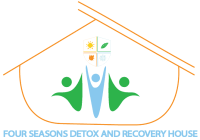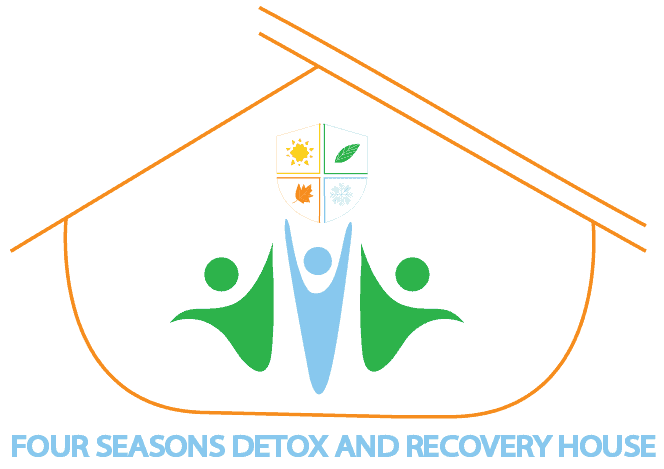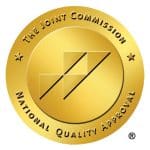Struggling with a drug or alcohol addiction is a complex process that can leave those affected feeling lost and hopeless. The variety of treatment and recovery options can often overwhelm those who seek addiction treatment for the first time. While addiction treatment is different for everyone, 4 Seasons Detox works to provide special treatment plans. Learn more about our outpatient rehab options in Los Angeles.
What is Outpatient Treatment for Substance Abuse in Los Angeles?
For those, who completed inpatient rehab at a residential treatment or a partial hospitalization program, an intensive outpatient program may be the next step.
Outpatient treatment lets patients live at home while attending therapy and programming for a few hours per day or week.
An intensive outpatient program often involves group therapy, individual therapy, experiential therapies, and support groups. With this model, you can continue a sober life with the support that fits your schedule.
Who is Eligible for an Intensive Outpatient Program?
Outpatient rehab is a strong option for treating substance abuse, but it may not be for everyone. Below are some qualifiers and other concerns before deciding on a treatment center.
In the initial intake session at an intensive outpatient program, the patient will likely be asked questions about their background and substance use history. Clinicians use these questions to decide if the patient needs more care or if outpatient treatment is appropriate.
Generally, there are some reasons why outpatient treatment may be the best option. Suppose the patient has completed a residential treatment program or PHP program. In that case, they likely already have the basic skills needed for an outpatient program. These programs work through continued education, so prior knowledge of recovery skills can be helpful.
Home life is also crucial to the success of outpatient treatment. A strong support network outside the treatment facility that promotes a sober life will also help with treatment success.
Considerations Before Attending an Outpatient Addiction Treatment Program in Los Angeles
An outpatient program is intensive, and there are certain circumstances in which a higher level of care may be needed. While the following may not be dealbreakers, they may make your outpatient treatment success harder to achieve.
If you have not previously attended any substance treatment programs, you will likely need more ongoing treatment to develop starting recovery skills.
If the patient is not currently sober or has a substance-related medical emergency, they will likely need the detoxification services offered by inpatient treatment programs. These programs are more equipped to work with healthcare concerns related to addiction.
For dual-diagnosis situations and co-occurring disorders, more intensive inpatient therapy may be needed to address concerns. However, outpatient programs may still be an option for patients currently receiving counseling for their mental health.
Since patients can return home at the end of the day program, having an adequate sober support network outside the treatment center is critical for recovery. Without support, the patient may be better off completing an inpatient rehab program first.
For those who have succeeded in previous treatment, an outpatient addiction treatment program can help the patient set healthy boundaries to ensure long-lasting recovery in their new sober life.
What Does Outpatient Addiction Treatment Involve?
After completing an inpatient rehab or PHP program, an intensive outpatient program will help the patient strengthen the skills they have already gained in the recovery treatment.
Outpatient treatment usually begins with the assumption that the patient has attended prior counseling and has a background understanding of recovery, coping skills, triggers, and boundary setting.
Outpatient care includes a variety of day treatment options in varying realms of mental health and addiction.
Some offerings of outpatient programming include:
Group Therapy: These can include AA and NA groups, as well as support groups led by those in recovery. These groups often work to further knowledge of triggers, addiction coping skills, medical education, and sober recovery skills.
Individual Therapy: This is an option where the patient meets one-on-one with a substance abuse treatment provider to address any areas of concern related to addiction, recovery, and mental illness. These therapy sessions may also draw on cognitive or dialectical behavioral therapy principles for those who need a special approach.
Experiential Therapy: Some outpatient treatment centers also give patients a chance to do other forms of therapeutic activities, which can include yoga and meditation, equine therapy, art and music therapy, as well as nature therapy activities. These therapy sessions allow patients to explore their interests while still working on skills applicable to substance abuse.
Our Outpatient Addiction Treatment Center in Los Angeles
In order to start your new life drug-free, the proper program is crucial to development. Seeking treatment can be difficult, but our providers understand that addiction and drug abuse affect our patients’ lives and mental well-being.
4 Seasons Detox works to offer clients the best treatment process for recovery. Our services include inpatient care, outpatient treatment, medical detoxification, and dual diagnosis treatment.
Treatment at 4 Seasons Detox
Nestled 40 miles outside of downtown Los Angeles, we offer substance use treatment for those located in the Southern California or Greater Los Angeles County area and those living further outside Los Angeles.
If you or a loved one is looking for the next step toward recovery, call us today! If you are concerned about whether you will have insurance coverage, you can check our covered health insurance plans here.






